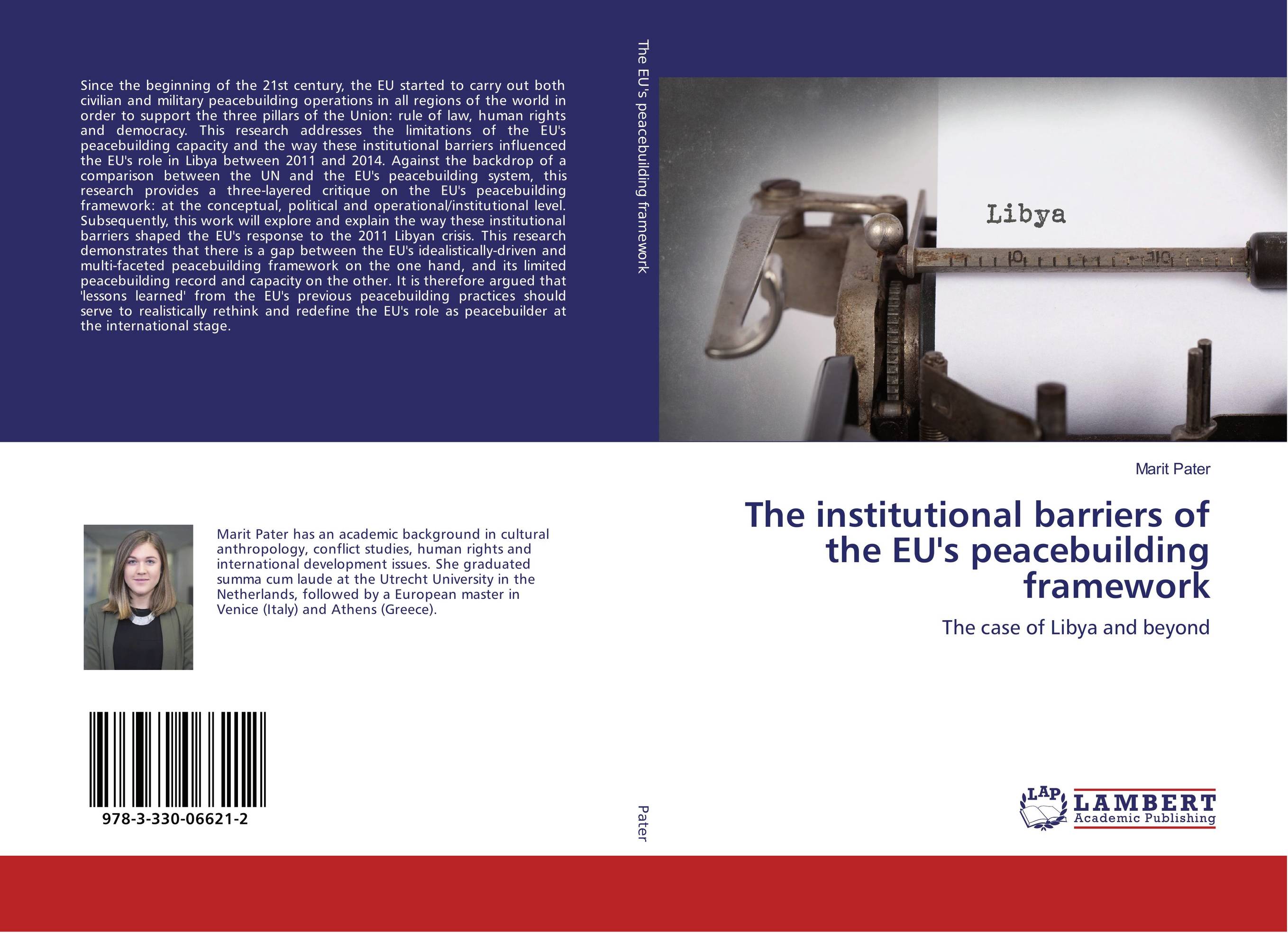| Поиск по каталогу |
|
(строгое соответствие)
|
- Профессиональная
- Научно-популярная
- Художественная
- Публицистика
- Детская
- Искусство
- Хобби, семья, дом
- Спорт
- Путеводители
- Блокноты, тетради, открытки
The institutional barriers of the EU's peacebuilding framework. The case of Libya and beyond

В наличии
| Местонахождение: Алматы | Состояние экземпляра: новый |

Бумажная
версия
версия
Автор: Marit Pater
ISBN: 9783330066212
Год издания: 2017
Формат книги: 60×90/16 (145×215 мм)
Количество страниц: 124
Издательство: LAP LAMBERT Academic Publishing
Цена: 30322 тг
Положить в корзину
| Способы доставки в город Алматы * комплектация (срок до отгрузки) не более 2 рабочих дней |
| Самовывоз из города Алматы (пункты самовывоза партнёра CDEK) |
| Курьерская доставка CDEK из города Москва |
| Доставка Почтой России из города Москва |
Аннотация: Since the beginning of the 21st century, the EU started to carry out both civilian and military peacebuilding operations in all regions of the world in order to support the three pillars of the Union: rule of law, human rights and democracy. This research addresses the limitations of the EU's peacebuilding capacity and the way these institutional barriers influenced the EU's role in Libya between 2011 and 2014. Against the backdrop of a comparison between the UN and the EU's peacebuilding system, this research provides a three-layered critique on the EU's peacebuilding framework: at the conceptual, political and operational/institutional level. Subsequently, this work will explore and explain the way these institutional barriers shaped the EU's response to the 2011 Libyan crisis. This research demonstrates that there is a gap between the EU's idealistically-driven and multi-faceted peacebuilding framework on the one hand, and its limited peacebuilding record and capacity on the other. It is therefore argued that 'lessons learned' from the EU's previous peacebuilding practices should serve to realistically rethink and redefine the EU's role as peacebuilder at the international stage.
Ключевые слова: European Union, Libya, peacebuilding



